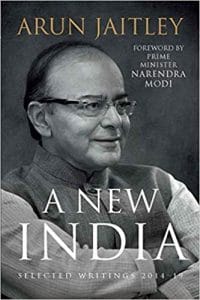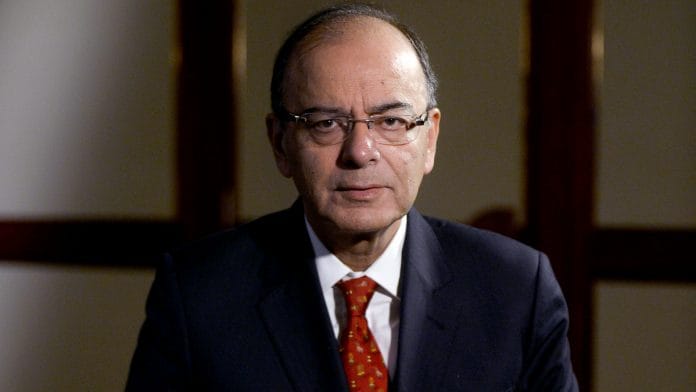In the late 1980s and the early 1990s, the VHP would distribute stickers which became a launching pad for its slogan गर्व से कहो हम हिन्दू हैं. Barring the BJP, a few groups endorsed it, while others denounced this slogan as a symbol of communalism. I am sure those still active in the VHP from that era would have had the last laugh when the Congress leader and its candidate from Bhopal, Digvijay Singh, felt compelled to publicly announce, ‘I too am a proud Hindu’.
A fundamental disagreement with Nehruvian secularism, as practised in the 1950s, was that Panditji believed that Hinduism was old fashioned, fundamentalist and obscurantist. He believed that it stood in the way of developing a scientific temperament. This politics continued for decades. In a multi-cornered election, parties like the SP, the BSP, the RJD and, of late, even the TMC, went a step further than the Congress. They created fear in the minds of minorities and endeavoured to develop a vote combination of a specific caste or a group and that of the Muslim minority. They owed their survival to this polarisation.
A significant attempt to dissent from this practice was undertaken by senior BJP leader, Shri L.K. Advani, in the 1980s and the 1990s. He strongly argued against a theocratic state, equality for minorities but his larger point was that secularism could no longer become a euphemism for majority bashing. He argued his case in modern vocabulary. A large part of India started seeing a rationale in this. The majority community was liberal, tolerant but no longer apologetic about its own religious credentials. The Congress never understood the power of this sleeping giant. The Shah Bano legislation brought by Shri Rajiv Gandhi was a result of his inability to gauge the reaction.
This mistake continued even through the UPA government where instead of treating the poor as a class, the then prime minister, Dr Manmohan Singh, announced that the minorities have a first right on the national exchequer. Meanwhile, the socioeconomic profile of India changed in slowly consolidating and enlarging India’s middle class. The middle class is aspirational. It has strong concern on national security. It is religiously inclined but not communal. At the same time, it will not accept majority bashing as the definition of secularism. The attitude of this class towards national security issues such as terrorism and a special status of Jammu and Kashmir, is extremely strong.
At the same time, its reaction on both Ayodhya and Sabarimala is self-evident. This has created fear of the backlash in the minds of those who conventionally indulged in majority bashing and were compromising on issues of national security. Let us analyse some of the recent episodes.
Also read: Grand old party of Indian politics has sadly been taken captive by a dynasty: Arun Jaitley
Rahul Gandhi
Without getting into the larger issue of whether a person can inherit his grandmother’s caste, the Congress has suddenly decided to proclaim its president as a Janeudhari Brahmin. He has now been declared a Shiv Bhakt. He does not miss an opportunity to visit temples and makes an event out of such programmes. His religious orientation was not visible in either 2004, 2009 or 2014. Is he willing to clarify his stand on the statements that Mehbooba Mufti and Omar Abdullah are regularly making, literally supporting soft-separatism? He gets away by saying, ‘I had some other views but I went by my party’s views on Sabarimala,’ but still not willing to spell out his stand on either Ram temple in Ayodhya or Sabarimala.
On national security, his stand has been highly questionable. He wants the sedition laws to be withdrawn. He wants the AFSPA to be removed and the army personnel in Jammu and Kashmir to be diluted. He had the audacity to visit JNU in support of those who raised the slogan ‘अफ़ज़ल हम शर्मिंदा हैं, तेरे कातिल ज़िंदा हैं’ and ‘भारत तेरे टुकड़े होंगे, इंशा अल्लाह इंशा अल्लाह’. He has, to date, not explained his presence at JNU.
Also read: How does Rahul, of the tainted Gandhi dynasty, expect to damage Modi’s image: Arun Jaitley
Digvijay Singh
The Congress candidate from Bhopal is a well-known majority basher. He claimed that the Batla House encounter during the UPA government was a fake one. He carried on a campaign in support of the terrorists and against the security forces. He even visited Azamgarh to meet the relatives of deceased or arrested terrorists. He holds the patent for manufacturing the theory of ‘Hindu terror.’ He took it to an illogical conclusion till the whole theory was busted. Today, realising the wrath of the electorate, he has become ‘proud’ of his Hindu credentials.
Also read: Pragya Thakur was Amit Shah’s personal choice to take on Digvijaya Singh in Bhopal
The AAP
The AAP has no answers. Its leaders supported those who raised the highly objectionable slogans at JNU. The party’s sympathy for jihadis and separatists is apparent. Besides supporting slogans like ‘भारत तेरे टुकड़े होंगे, इंशा अल्लाह इंशा अल्लाह’, it has, for months together, held up the file at the Delhi Sachivalaya to grant sanction to the Delhi police to prosecute those who raised these slogans. Its heart is with the jihadis and separatists but it realised that the electorate in Delhi never accepts parties or candidates with credentials of this kind. The AAP has one simple question to answer: why is sanction not being given for prosecuting those who raise these anti-national slogans?
But the hypocrisy of the AAP climaxed when, in the last few days, its only lady candidate from Delhi shed her family legacy of ultra-left leaning parents, who were important interlocutors seeking a pardon for Afzal Guru, and started wearing not only her religion but her caste, her father’s caste and her husband’s caste on her sleeve. I was wondering why those brought up in an atheist environment start displaying their religion and caste publicly for political convenience. India is a land of patriotic people. The contrarians are merely a fringe.
The fringe can be a disgruntled lot getting a disproportionate voice on electronic and social media, one cannot belong to the fringe and win elections. This is the power of democracy. Religiosity is suddenly being discovered. Majority bashing has been replaced by a self-proclaimed title of a ‘proud Hindu’ or even a ‘Punjabi Hindu Kshatriya’. Today, even atheists will wear their religion and caste on their sleeves. elections, after all, are a convenient season for all the neo-converts.
Posted on 29 April 2019
 This excerpt from A New India: Selected Writings 2014–19 by Arun Jaitley has been published with permission from Juggernaut Books.
This excerpt from A New India: Selected Writings 2014–19 by Arun Jaitley has been published with permission from Juggernaut Books.







For a second I was wondering how does a dead man write for the Newspaper. You should use the words LATE ARUN JAITLEY